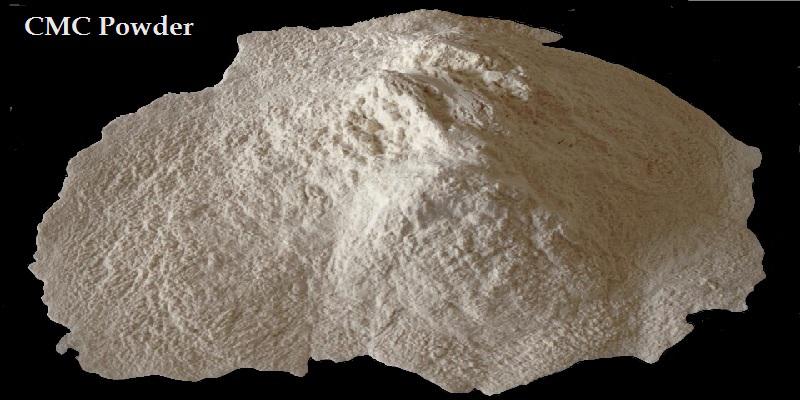

_28905.jpg)
_28905.jpg)
Sodium Carboxymethyl Cellulose (SCMC or CMC) or Cellulose Gum is an anionic water soluble polymer; it is derived from cellulose, which is made water soluble by a chemical reaction. The water solubility is achieved by introducing carboxymethyl groups (-CH2-COOH) along the cellulose chain, which makes hydration of the molecule possible.
The chemical name of SCMC is SODIUM SALT OF CARBOXYMETHYL ETHER OF CELLULOSE.
SYNONYMS
Carboxymethyl Cellulose Sodium Salt, Sodium Cellulose Glycolate, Carboxymethyl Cellulose Sodium, CMC-Na, Na–CMC, Sodium CMC, Modified Cellulose, Cellulose Derivatives, Anionic Carboxy Methyl Cellulose, Anionic Modified Cellulose, Anionic Cellulose Derivatives, Cellulose Gum, CMC, Carboxymethyl Ethers of Cellulose, Sodium Salt of Carboxymethyl Ether of Cellulose.
FUNCTIONS & PROPERTIES
Sodium Carboxymethyl Cellulose (CMC) has the following functions and properties:
1) it acts as a thickener, binder, stabilizer, suspending agent and flow controlling agent.
2) It forms fine films that are resistant to oils, greases, and organic solvents.
3) It dissolves rapidly in cold water.
4) Acts as a protective colloid reducing water losses.
5) It is suitable for use in food systems.
6) It is physiologically inert.
7) It is an anionic polyelectrolyte.
These properties and functions make it suitable for use in a broad range of applications in the food, pharmaceutical, cosmetic, paper, and other industries. To serve these diverse industries, CMC are available in three grades: HIGHLY PURIFIED, PURIFIED & TECHNICAL and in many types based on carboxymethyl substitution, viscosity, purity, particle size, and other parameters.
CAS NUMBER: 9004-32-4.
CHEMICAL FORMULA: [C6H7O2 (OH) x (OCH2COONa) y] n
Where n = degree of polymerization, x = 1.50 to 2.80, y = 0.2 to 1.50, x + y = 3.0
y = degree of substitution
CMC is a white to creamish coloured powder consisting of very fine particles, fine granules. It is odor less and tasteless. It is a hygroscopic powder readily dissolves in water to form colloidal solution. It is insoluble in many organic solvents such as methanol, ethanol, propanol and acetone and so on.
CMC are widely use in Foods, Pharmaceuticals, Cosmetics, Textiles, Papers & Corrugated Boards, Detergents, Paints, Oil Well Drillings, Welding Electrodes, Pesticides, Ceramics, Tobacco, Mosquito Repellent Incense, Explosives, Batteries, Pencils, Leathers & other industries.
More details:View company website
Its Free
Verify Now